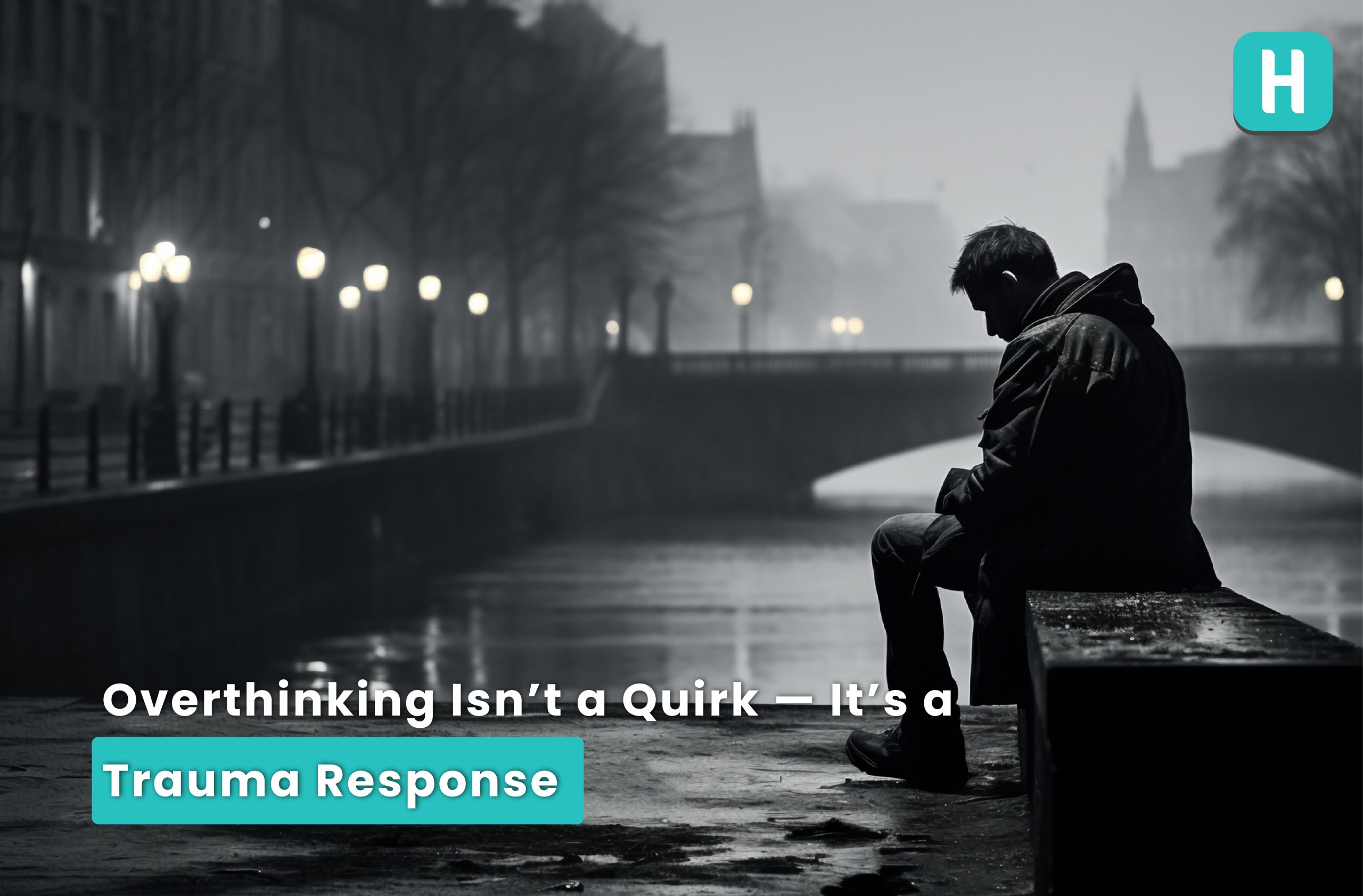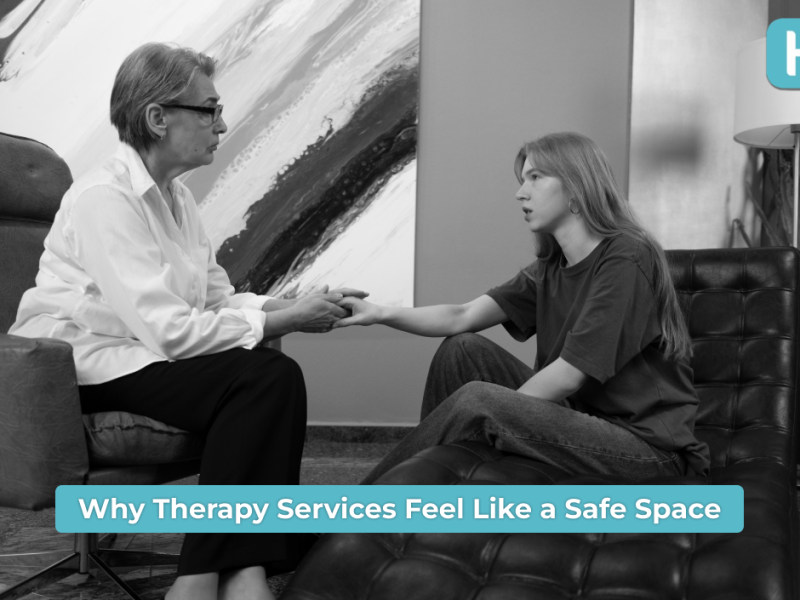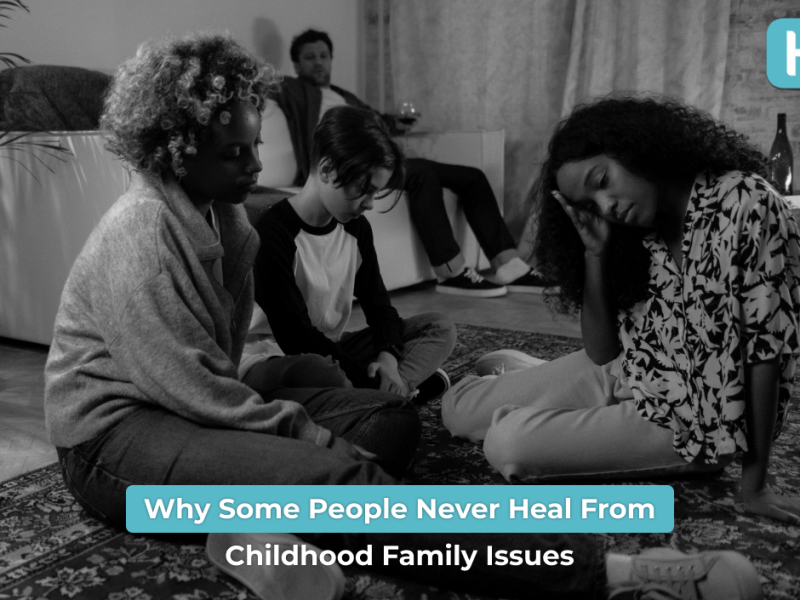Overthinking Isn’t a Quirk — It’s a Trauma Response
“I wish my mind would just shut up.”
A sentence millions whisper at 3AM.
Overthinking isn’t just annoying.
It’s not a “cute” personality trait.
And it’s definitely not harmless.
It’s often the result of unprocessed trauma.
Meet Samina: The Girl Who Couldn’t Sleep for 12 Years
Samina was 8 when her father left and never came back.
She never cried. She just became quiet. Hyper-aware. Careful.
- By 13, she was “the overthinker” of her class.
- By 19, she couldn’t sleep without noise because the silence made her thoughts louder.
- At 30, she broke down in therapy when her psychologist gently said:
“You weren’t overthinking. You were scared. You just had no one to tell.”
Overthinking Is a Symptom of Survival Mode
You’re not dramatic. You’re dysregulated.
📌 According to a study from Stanford University, people with a trauma history are twice as likely to develop chronic overthinking patterns. Their brains remain in “hypervigilance,” always scanning for danger — even in safe environments.
📌 In fact, overthinking activates the same brain areas as physical pain.
MRI scans show that rehashing painful thoughts or regrets can create actual neural distress, similar to a physical injury.
So yes — your overthinking is real. And it’s hurting more than your productivity.
This is why so many people actively seek overthinking help, not because they’re weak — but because they’re tired of carrying battles no one sees.

Where It Starts: Not With Thought, But Fear
Overthinking often stems from unresolved fear:
- Fear of abandonment (from childhood)
- Fear of judgment (from being mocked or dismissed)
- Fear of punishment (from toxic parenting or academic failure)
- Fear of conflict (from growing up in chaos)
So what do you do?
You become hypervigilant. You plan for every scenario. You apologize before you’re even blamed.
Because somewhere in your past, thinking ahead kept you safe.
Most Dangerous Thing? You Look “Fine.”
Most overthinkers seem like they have it together:
✔️ High achievers
✔️ Helpful friends
✔️ The ones who say “I’m just tired” with a smile
But inside?
- Exhaustion from replaying conversations over and over
- Shame after social interactions
- Feeling like a fraud — even in your wins
- Fear of making the wrong move, so you make none

One woman in therapy said:
“I’ve been planning a divorce for 3 years — in my head. I haven’t spoken a word to him.”
Overthinking traps you in a loop. And the loop is lonely.
If you’ve ever begged your mind to slow down or wished for peace inside your own head — you’re not alone. So many silently seek help with overthinking, but never say it out loud.
Some People Never Recover — Because They Never Learn This
In a 2023 survey by The Journal of Psychiatric Research, it was found that 37% of adults who reported chronic overthinking had NEVER been told it could be linked to trauma.
They blamed themselves for years.
And in ignoring it, they developed:
- Chronic insomnia
- Anxiety-driven IBS
- Emotional numbness
- Impulsive relationship choices
Because when your brain is stuck in loops, your body eventually screams for attention.
Real Story: “I Lost My Job, Not Because I Was Lazy — But Because I Couldn’t Decide”
Owais, a 28-year-old software engineer, lost his first job after freezing during a product demo.
Not because he didn’t know the solution.
“I overthought every possible thing that could go wrong… and it became a self-fulfilling prophecy.”
He’d been told to “be confident.”
No one told him his indecision was trauma-related.
After therapy, Owais now leads team meetings.
The first thing he said when he improved?
“I’m not slow. I just needed to feel safe to move.”
How Helply Helps: From Racing Thoughts to Regulated Healing?
At Helply, we don’t treat you like a symptom. We see the story behind it.
“You Deserve Peace — Not Just Less Chaos”
Our trauma-informed therapists specialize in overthinking therapy by:
🔹 Identifying the emotional roots (not just thoughts)
🔹 Teaching nervous system regulation tools (so your body feels safe)
🔹 Building self-trust (so you don’t need to second-guess everything)
🔹 Offering affordable, accessible therapy in your language, from your space
If you’ve been trying to stop over thinking everything you do, say, or feel — let us help you breathe again.
You don’t need to suffer alone. Let’s bring you home to peace — one session at a time.
FAQs
- Is overthinking curable?
Yes — but not by thinking more. It’s “healable” through nervous system regulation, trauma resolution, and building emotional safety.
- Can I stop overthinking without medication?
Absolutely. Many people recover through somatic therapy, inner child work, breathwork, or coaching. But if your anxiety is severe, a professional can guide you through medication as a temporary support.
- Is overthinking related to childhood trauma?
Very often, yes. Especially if you had emotionally unavailable parents, academic pressure, constant punishment, or abandonment issues.
- I can’t afford therapy. What do I do?
Helply offers affordable plans and local-language therapy for South Asian, MENA, and diaspora communities. Even one session can unlock years of self-understanding.
- What if I’ve been like this my whole life?
Then it’s time to finally stop surviving — and start healing. You don’t have to live this way forever.


